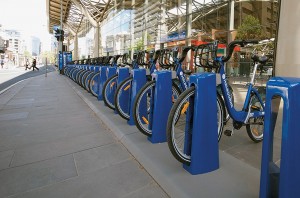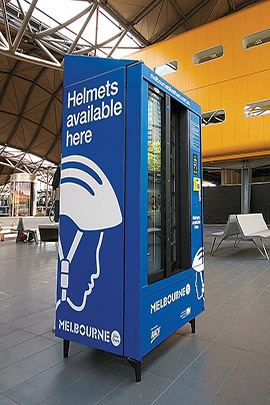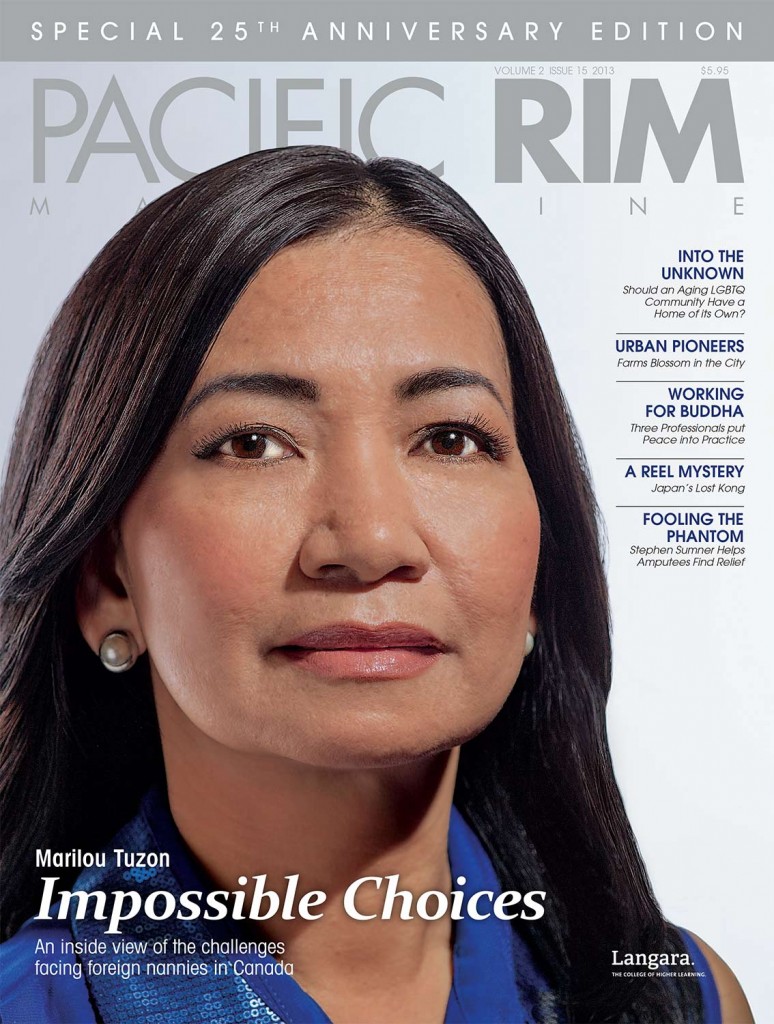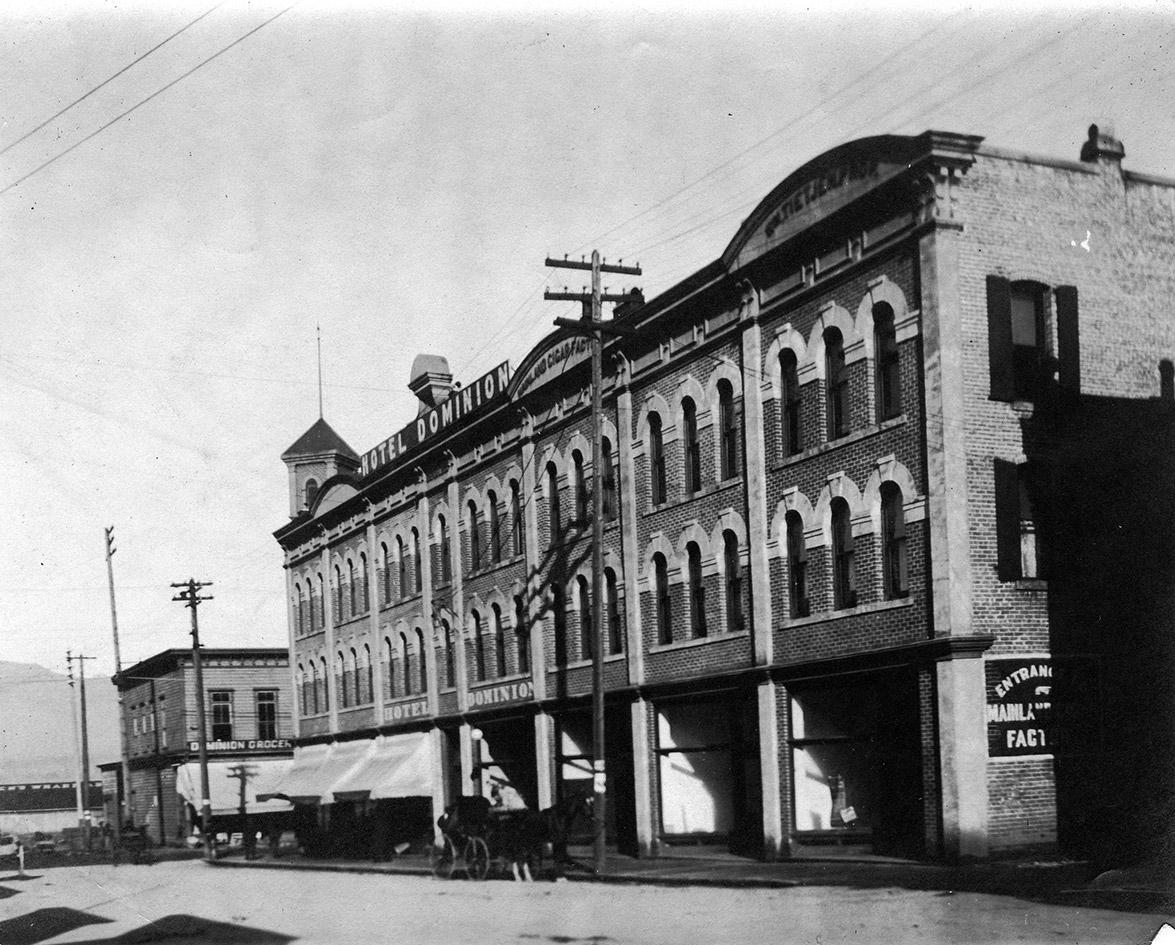Imagine this: Vancouver’s downtown core is bustling as usual but with fewer cars on the road and more cyclists. You see bikes parked in stations every couple of blocks. People swipe their cards and unlock bikes from the station, while others return bikes after completing their trip. You watch as business people speed by, late for a meeting across town; commuters bridge the gaps between modes of transit; and tourists casually pedal around, taking in the sights of the city. Vancouver’s newest form of public transit, the bike-share program, is in full swing.
Vancouver will soon be added to the growing list of cities with a public bike-share program. The city is currently in negotiations with Portland-based operator Alta Bicycle Share Inc. to bring the program to Vancouver in the summer of 2013. Bixi, a public bike-share company from Montreal, will be a sub-contractor of Alta and will provide the bicycles and stations. The program is proposed to have 1,500 bikes at 125 stations throughout downtown Vancouver and its metropolitan core area, with the system boundaries currently set at Broadway, Arbutus, and Main Street. The stations would be placed every two to three blocks, accommodating approximately 20 public bikes each. The program is designed for short one-way trips and the pricing structure reflects that. If Vancouver’s program mimics Toronto’s, on-demand access fees would start at no fee for the first 30 minutes, with the user being charged $1.50 for up to 60 minutes; subscription fee options range from a 24-hour fee of $5 to an annual fee of $95.
Benefits Of The Program
The city of Vancouver is looking to reap the benefits of a public bike-share program as it offers a low-cost transit option and an alternative to driving. The program could improve connectivity and flexibility within the transit system without the added responsibilities of bike ownership.
Economically, cycling increases business exposure because riders are travelling slower and are more likely to stop and shop with the money they save on transit. The program has shown significant benefits for the environment as well. Montreal’s program, run by Bixi, has saved over 1,360 tonnes of greenhouse gases since its launch in 2009. Lyon, France rivals that with an estimated equivalent of 8,436 tonnes of CO2 pollution saved since its 2005 launch.
Bike-Share Around The World
Even though bike sharing has been around for over 40 years, France is recognized as kick-starting the phenomenon with the launch of its successful program in Lyon in 2005. Other cities followed suit, and programs soon became common throughout Europe. And public bike-share is no longer just a European thing. The number of programs worldwide has exploded in recent years: from 60 in 2007 to almost 450 today. Bike-share programs can now be found in Montreal, Ottawa, Denver, London, and many other cities.
While most bike-share programs around the world have been successful, two Australian cities, Brisbane and Melbourne, have not done so well. Since their 2010 launch, both programs have encountered lower ridership than initially anticipated. Brisbane’s program, operated by CityCycle, recently announced its 200 thousandth ride. This is impressive until you do the math: the program is used about 600 times a day and has 2,000 bikes, meaning the chances of a bike being used is only about once every four days. Melbourne offers approximately 600 bikes through its program operated by Alta Bicycle Share Inc., the same company currently in negotiations for Vancouver’s program. The program had its best day of use during the Australian Open in January 2012: 733 rides were taken that day, just over one ride per bike. Average daily use often drops to a third of that number.
Various reasons have been named for Australia’s failing programs. However, recent studies have shown it comes down to the same thing: mandatory helmet laws.

No Helmet, No Ride?
In a recent survey by the Centre for Accident Research and Road Safety-Queensland (CARRS-Q) in Melbourne, over 60 per cent of respondents cited helmet restrictions as the primary reason stopping them from using the program. Focus groups held in Brisbane showed similar results: people described the mandatory helmet law as their reason for not using the program, and also felt the need for a helmet reduced the spontaneity often associated with bike sharing. Similar issues could threaten the bike-share program in Vancouver.
Erin O’Melinn, Executive Director at HUB, formerly the Vancouver Area Cycling Coalition, speaks enthusiastically about everything related to cycling, including the potential bike-share program. When asked about HUB’s opinion on the mandatory helmet law, she sighs, nods her head, and then smiles. It is obvious she has been asked this many times before. “We encourage and support the use of helmets. However, we believe adults should have the right to choose whether they would like to wear one or not.” She continues by saying that HUB “would like to see the emphasis shifted away from helmet use to things that actually increase the safety of cyclists such as better infrastructure and cycling education, which are much bigger pieces in the overall safety of cyclists.” HUB’s opinion cannot change provincial law, so the topic shifts to the effect the mandatory helmets may have on Vancouver’s bike-share program. “I don’t think it’s a showstopper,” O’Melinn says, “but most large cities don’t have a mandatory adult helmet law. It adds a different level of complexity here in Vancouver.”
One of the biggest things O’Melinn stresses is the need for an integrated helmet solution. Unlike the programs in Australia, HUB wants to see helmets be as accessible as possible. “It’s great to be able to learn from different cities like Melbourne, which has helmet vending machines and partnerships with convenience stores,” O’Melinn says, “but it’s not as accessible. It’s two separate transactions.” The success of Vancouver’s program could come down to the innovation of helmet distribution by the manufacturers and system operators; “They can’t just take what they have done in the other cities and plunk it into Vancouver.”

They can’t just take what they have done in the other cities and plunk it into Vancouver.
Vancouver’s city council is aware of the issues surrounding B.C.’s mandatory helmet law but is optimistic about the possible outcome. Councillor Heather Deal is Vancouver’s liaison to the Active Transportation Committee. She says, “The provincial helmet law presents a challenge, but we know that even cities without laws are looking for helmet options. I think that an effective solution could be picked up elsewhere.” When asked about any of the operator’s plans or solutions to the helmet problem, Deal says she has “seen options, but not a proposed solution yet.” She also mentions that council understands the solution must be integrated to avoid any problems similar to Melbourne’s.
Making Room Amongst Local Bike Rental Stores
Mandatory helmet law aside, Vancouver’s bike-share plans may have another challenge ahead of them: the effect on local bicycle rental businesses. Vancouver rental shops do not like the horror stories they have heard from programs in Montreal and Ottawa, and they are not staying quiet about it.
Spokes Bicycle Rentals sits close to the entrance of Stanley Park, its double doors propped open, inviting tourists and locals to take a spin on one of their many rental bikes. The radio plays in the background and a bike mechanic rummages around the shop as Geoff Sharein sits in his office. Sharein, Product Manager at Spokes, has major concerns about the bike-share program and has rallied other bike rental shops in the downtown area together, hoping to have a stronger voice at city hall.
When the possibility of a bike-share program appeared on the radar in Vancouver, Sharein began contacting bike rental shops in other cities who have faced the same problem. One rental shop owner in Montreal had advice that resonated: “He said bike-share is going to be the biggest challenge that my business ever faces. If he had to do it all over again, he would have focused really strongly on getting all the shops in the area together to be more of a presence at city hall,” says Sharein. With that advice, he and local bike rental shop owners started to think of what they could suggest to the city to avoid being run over by the bike-share program. The rallied rental shops went to city hall with three solutions that could mitigate some of the damage to their businesses without hurting the bike-share program. “We wanted to see the rate structure skewed a little bit. The price is absurd,” Sharein says, speaking of the projected Vancouver prices based on a current program in Toronto. These current prices could give tourists incentives to use the program instead of renting a bike, as it would be significantly cheaper. Their second solution was to keep the stations off of Denman Street, where most of the city’s bike rental shops are located. Sharein stresses the third solution the most: keeping the bike-share program out of Stanley Park. “It’s absolutely the nucleus of what all these shops do,” he says, emphasizing “it’s the bread and butter for all of us. If they want to stick a bike-share station at this end and on the English Bay side, we’re as good as done.”
Despite his voiced concerns, Sharein and other bike rental shops owners are not against the idea of a bike-share program. Sharein mentions, “We’re in the business of cycling, and anything that improves the rate of cycling in Vancouver is probably good for us and the bike industry overall. The idea, if executed properly, has demonstrable benefit for the city, but it’s up to the city to be very careful and not destroy small businesses.”
It is evident that Sharein has done a fair amount of homework on bike-share programs, as he mentions Melbourne and Brisbane when the mandatory helmet law is brought up. Comparing the way bike rental shops deal with helmets to the way that the bike-share program may deal with them, he notes “the biggest hitch is really that a person is going to be walking up to a vending machine, and it’s going to be spitting a helmet out for them. What happens if your helmet is too big? Or if it doesn’t really fit?” He laughs, and then adds, “Is there going to be any elegant way to stick that helmet back in the machine and get one that does fit? Here, you’re dealing with a person at a counter. When the helmets come back, it’s a real person who is checking the helmet for damage and who is sanitizing it. I don’t see any way the bike-share program can do that.”
With the future of Vancouver’s bike-share program in their hands, Alta Bicycle Share Inc., Bixi, and the city have a long road ahead of them. If a middle ground can be found, one where both bike renters and a bike-share program can work alongside each other, an entire industry can be saved. The biggest risk the city faces is launching a program with a mandatory helmet law in place. However, if the operator is innovative in integrating helmets into the program, they might be able to avoid turning out like the bike-shares in Melbourne and Brisbane. If all goes well, Vancouver’s downtown area could be bustling with bike-sharing, helmet-wearing cyclists this summer.
On July 18, city staff released their final recommendation for the Vancouver bike share system owned by Alta Bicycle Share. On July 23 the agreement was authorized by city council, the system is expected to roll out in early 2014.











